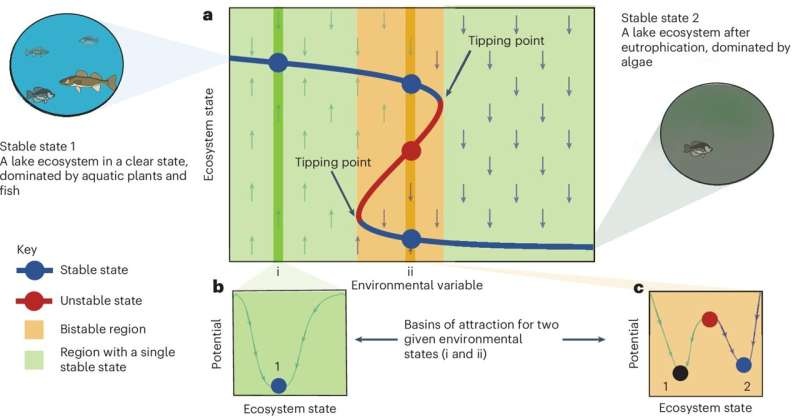Monash University researchers have discovered that evolutionary processes can significantly impact the stability and tipping points of ecosystems, potentially leading to earlier ecosystem collapse or aiding in their recovery. This groundbreaking study provides the first experimental evidence of how evolution can influence ecosystem tipping points, offering new strategies for conservation and ecosystem management.

Discovering Ecosystems Tipping Points
The research, coordinated by Phd candidate Chris Blake and Associate Professor Mike McDonald from the Monash University School of Biological Sciences, provides important lessons for how to manage much larger ecosystems under serious environmental threat.
In a troubling pattern, many of some global ecosystems — especially coral reefs — are teetering on the edge of imminent thresholds beyond which even small environmental shifts can tip them into rapid decay and biodiversity loss. The scientists also found that tipping points are not a one-way street, and can change over time—meaning an ecosystem might collapse earlier than expected or hold out for longer.
The team tracked evolutionary stability across co-evolution of an evolved microbial community (yeast and E. coli, 4,000 generations). These results showed that the tipping point behaviour of ecosystems can be fundamentally altered by evolution. The strong competition among evolved community members caused a more rapid collapse, while the evolved taxa were only able to quickly adapt (delaying tipping) when they could resist sudden dramatic changes in their environment.
Evolutionary Strategies at Scale
However, the researchers used their experimental outcomes to also build a mathematical model that revealed how changes in particular traits can increase the ecological resilience of the plants.
The researchers said this finding raises the possibility that we could apply a sort of evolutionary medicine to bolster the resilience of key microbial ecosystems—for example, those in plant or animal hosts—to human-triggered environmental fluctuations.
These implications reach beyond microbes. In light of the ongoing disruption of ecosystems globally by human activities, our insights suggest evolutionary considerations may be an unexploited avenue to bolster ecosystem resilience in threatened systems.
“Our results suggest that the biggest bang for their buck would be biological adaptation,” Blake said, ” creating strains to enhance resilience by relying on robustness alone (e.g., through directed evolution or genetic engineering) is ill-advised due in part to our result that selection for resilient traits increases mutation rate.”
Conclusion
This new view of ecosystem stability and tipping points research was proposed by Monash University. When designing strategies for conservation and ecosystem management — which are ever more critical as the pressures of global change escalate — a consideration of evolutionary processes can greatly improve their efficacy, ensuring that our biodiversity and natural heritage continue to thrive.
